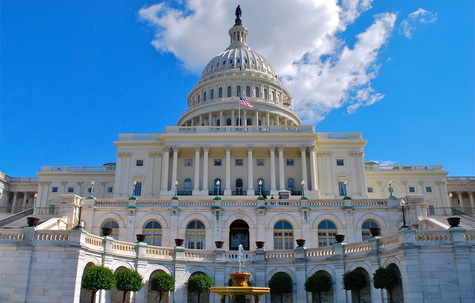
The House of Representatives on Tuesday passed a continuing resolution (CR) that would prevent a government shutdown on Feb. 18 by extending current government funding levels for three weeks, through March 11. The CR, which also applies to the National Flood Insurance Program, moves to the Senate for consideration next week. (CR legislative text and summary)
CR & Omnibus
- If passed by the Senate, the CR would give lawmakers additional time to finalize a separate “omnibus” spending bill for fiscal year 2022, which runs from Oct. 1, 2021 through Sept. 30, 2022. (BGov, Feb. 9)
- House and Senate Appropriations Committee leaders announced on Wednesday a “framework” deal for top-line spending levels for defense and domestic funding. Such an agreement would clear the way for congressional committees to complete a sweeping 12-bill spending bundle, which could amount to a $1.5 trillion omnibus package funding government operations into the fall. (PoliticoPro, Feb. 10)
- A full-year omnibus package would also release an additional $197 billion over 10 years for energy, transportation, and other programs that were part of last year’s bipartisan infrastructure bill. (BGov, Feb. 9 and CQ, Feb. 10)
Omni & BBB

- The “omni” funding bill is now a focus of Congress since President Biden’s multi-trillion Build Back Better (BBB) Act has been sidelined on Capitol Hill. (Politico, Feb. 10)
- Sen. Joe Manchin (D-WV), above, – a key vote in the 50-50 Senate – said on Sunday that he sees a government funding package as a higher priority than the stalled BBB bill. ‘We have to get a budget bill first,’ Manchin said. (CNN, Feb 6)
- Manchin this week also expressed his reluctance to endorse additional federal spending, after news that consumer inflation rose to 7.5%, the largest 12-month increase in four decades. (BGov, Feb. 10)
- Manchin’s statement included, “It’s beyond time for the Federal Reserve to tackle [inflation] head on, and Congress and the Administration must proceed with caution before adding more fuel to an economy already on fire. As inflation and our $30 trillion in national debt continue a historic climb, only in Washington, DC do people seem to think that spending trillions more of taxpayers’ money will cure our problems, let alone inflation,” Manchin said. (Newsweek, Feb. 10)
The start of the 2023 fiscal year cycle is approaching as Congress aims to pass an omnibus for the current year by March. President Biden is expected to release his FY2023 budget request shortly after his State of the Union address on March 1.
# # #

